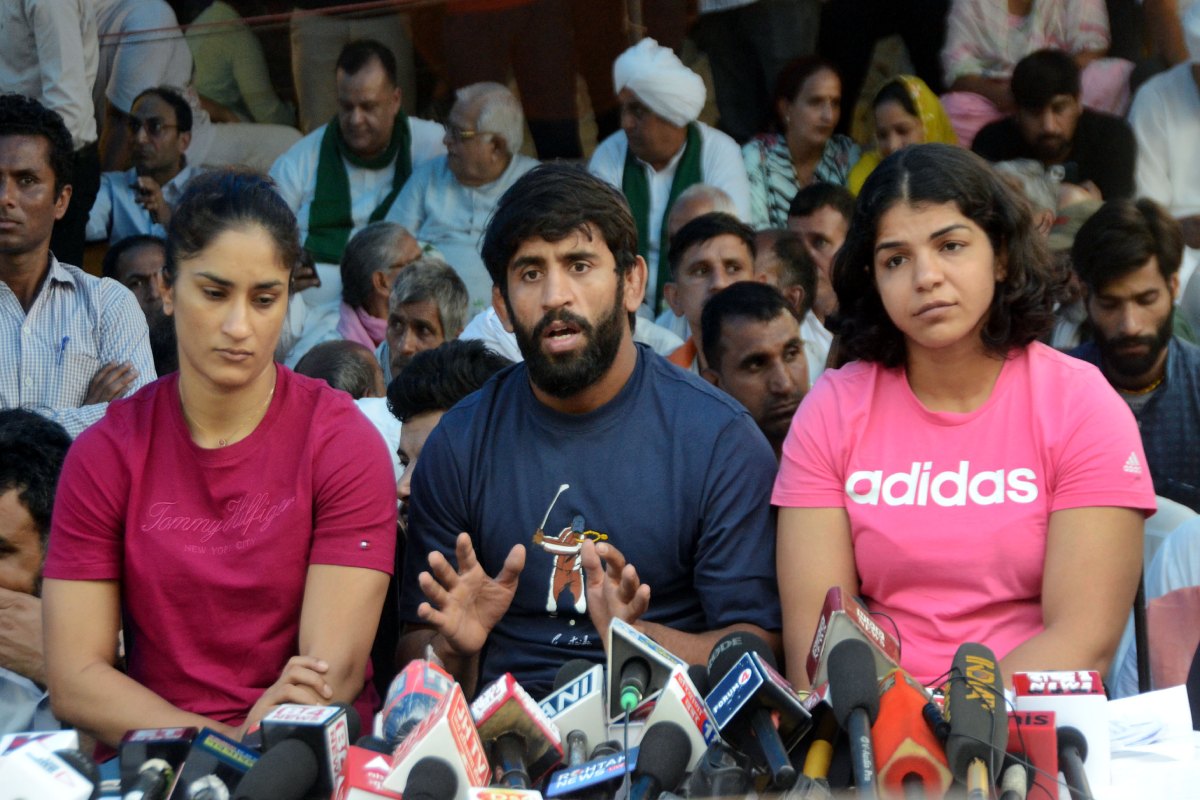Crowds at Jantar Mantar, inclusive of the conscientious, the curious and the combative, are said to have thinned though the women wrestlers who have taken on federation chief Brij Bhushan Sharan Singh, having allegedly been sexually victimised by him for years, keep at it, promising to widen their agitation, taking it to the states. The loud thinking led to the media saying the protest was fizzling out and the Delhi Police’s steely refusal to arrest the Bharatiya Janata Party member of Parliament ~ they have belatedly come up with a special probe team ~ was generally believed to have created an impasse which left the wrestlers without leeway.
They are now nowhere girls, sort of. Days earlier, when Jantar Mantar was on the front page of the paper, there was a ring of hostile criticism of the wrestlers in the assertion that the sit-in had been hijacked by political outfits united in their opposition to the BJP, which was said to be shielding Singh to shore up its electoral fortune in Uttar Pradesh. Political parties seldom interest themselves in anything that does not yield benefit for them but the cause of the wrestlers, medal-winners abroad and therefore popular at home, had struck a chord with people, with the Leftist firebrands of Jawaharlal Nehru University speaking in the same voice as the khap panchayats of northern India. Well might the protest have got bigger, given the stony silence in the adversarial ranks ~ which many deemed an acknowledgment of guilt ~ but history alone will say if, for a second time in the movement, the wrestlers erred in allowing themselves to nudge away well-wishers whom they could have leaned on.
Advertisement
The first time around, in January, the athletes spurned politically grounded assistance when they were clearly up against it, hoping that not to rub the ruling party up the wrong way would persuade it to reckon with their point of view. And in April, when they were back at Jantar Mantar, saying that word given had not been lived up to, a “come-one-come-all” message from them gave the plot a narrative drive which lost a lot of its panache subsequently. What the authorities do not seem alive to is the long-term damage the confrontation can inflict. India may not be the sort of country where someone like Brigitte Bardot would have railed, as she has, against the staging of the Olympics in Paris or the cruelty of equestrianism to horses.
But when the police in the nation’s capital suggest a near-total organisational inertia in the face of toplevel athletes’ complaints against a federation chief with dozens of cases against him in his “more-equal-than-others” status, it probably tells people who we collectively are. If Indian girls henceforth come to be withheld by their families from sport, we can only whistle for glory stories of the future, whilst recalling PV Sindhu, Anju Bobby George or PT Usha. We are running back, very fast.









